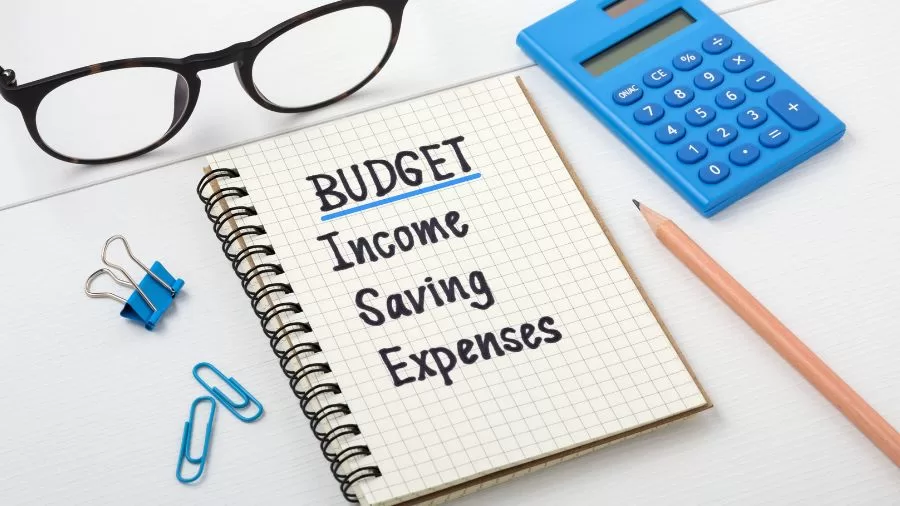Finance
Personal Finance Strategy: How to be Financially Free

It takes a well-organized personal finance plan to reach financial freedom. Making a budget is the first step in efficiently managing income and expenses. Regularly contributing to a savings account and establishing specific savings objectives are crucial. Diversifying your investments is essential for reducing risk and avoiding rash financial decisions. Prioritize paying off high-interest debts first if you have any outstanding debts. Examining various financial options, including investments, passive income streams, or even entertainment-based profits from the top Qatar casinos, can also be advantageous if done sensibly. Lastly, make a thorough financial plan that details your long-term spending patterns and financial objectives. You may enhance your financial health and strive toward long-term financial independence by adopting the appropriate actions.
It is crucial to understand the basics of budgeting when it comes to the management of finances. First, you need to find out what is coming in and what is going out.
Classify your spending into two groups, fixed and variable costs, to see where you can cut down on the spending. Develop a budget that meets your financial goals and distinguish between the needs and the wants in order to have some flexibility. It is important to update and change the budget frequently, especially when there is a change in income or expenditure. This way, with the help of a budget, you will be able to control your finances, reduce your level of stress and build a good financial future.
Efficient Saving Tips
This is where budgeting begins, and then there are other ways of saving money. When you know your income and expenses, save for specific goals. To avoid the temptation of spending the money, schedule the money to be transferred directly into your savings account.
You can also use the “50/30/20” rule: This means that you should use 50% of your income for necessities, 30% for wants, and 20% for savings.
Review your spending and look for ways to cut on the spending and use the money you save into your savings. Last, but not least, establish a separate account for unexpected expenses to avoid touching your savings when such an event occurs. Stay disciplined and watch your savings grow.
Smart Investment Strategies
While saving is noble, it is important that one be familiar with the smart investment strategies that can significantly increase returns. First of all, it is advisable to diversify your portfolio so that you do not invest all your money in one type of investment tool—stocks, bonds, and real estate.
One should also practice dollar-cost averaging, where a fixed amount is invested at regular intervals to reduce the effects of market volatility.
When investing, it is always important to know what you are investing in. Don’t invest without knowing the risks and possible returns involved.
It is also important to set some financial goals to help determine the investment strategies. Finally, the last one, be patient – successful investing is a process that usually takes years.
Strategies for Eliminating Debt
To pay off debt effectively, it is necessary to have a plan, especially if you want to get control over your finances again. First of all, make a list of all your debts and then target the ones with the highest interest rates. You may want to use the avalanche or the snowball method; pay off the debt with the highest interest rate or pay off the small debts to create momentum.
Establish a budget that is directed towards the eradication of the debt and reduce the expenditure of other facets.
Look for debt consolidation to combine payments and lower the interest rates. Finally, you should try to negotiate with your creditors to reduce the interest rates or to come up with a better payment plan. Stay strong, keep track of your progress, and reward yourself for every success on the way to financial independence.
Creating a sustainable financial plan is important to understand where you are and where you want to be in the future. The first step is to determine your income, expenses, and savings. Set up both the short-term and long-term goals that you want to achieve in the near future and in several years, for instance, to retire or buy a house.
Then, you need to learn how to manage your resources; first, learn to distinguish between necessary outlays and savings and learn to control your spending. It is also important to update and change the budget frequently. Finally, you should know about the investments and seek advice from a professional expert if possible. This approach will enable you to achieve financial stability in the long run.
Conclusion
This means that one has to be proactive in his or her personal finances to be financially free. Therefore, if you want to be financially free, you should know how to create a budget, how to save money, how to invest wisely, and how to get rid of debt. This is because developing a sustainable financial plan is a process that does not end, so you should stay committed and make changes when necessary. This is because with the right strategies in place, you are on your way to achieving your financial goals. Get started now and make your financial dreams a reality!


















































